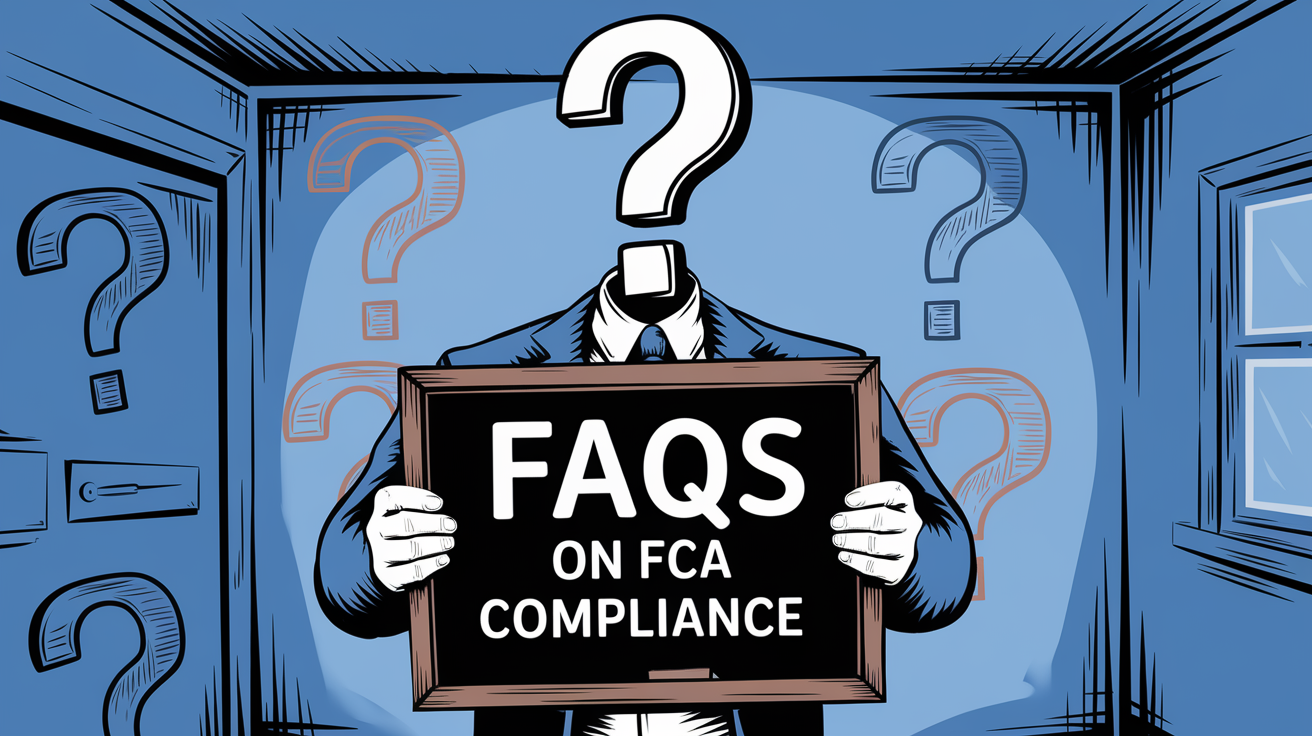
FCA Compliance FAQs: A Comprehensive Guide
Introduction to FCA Compliance
FCA Compliance refers to the adherence to regulations set forth by the Financial Conduct Authority (FCA) in the UK, aimed at ensuring fairness, transparency, and efficiency in financial markets. Understanding FCA compliance is crucial for firms operating within the financial services sector, as it governs their operations and protects consumers.
What is FCA Compliance?
FCA compliance is the process of meeting the obligations and requirements established by the FCA. This includes adhering to legal regulations that ensure companies operate safely and ethically, safeguarding consumers and the integrity of the financial system. Non-compliance can lead to severe penalties, including fines and reputational damage.
Who Needs to Comply with FCA Regulations?
All firms classified as “regulated” by the FCA must comply with its regulations. This includes banks, investment firms, insurance companies, and mortgage lenders. Each of these entities must understand the specific compliance requirements that apply to their operations, depending on their services and risks.
Key FCA Compliance Principles
The FCA has established several key principles for firms to follow, which include:
- Integrity: Firms must conduct business honestly and ethically.
- Skill, care, and diligence: Companies should have adequate resources and expertise.
- Management and control: Effective governance and oversight mechanisms are essential.
These principles guide firms in maintaining responsible conduct in their business practices.
Steps to Achieve FCA Compliance
To achieve FCA compliance, firms should consider taking the following steps:
- Conduct a Risk Assessment: Identify potential risks associated with your services and establish processes to mitigate them.
- Develop Internal Controls: Implement policies and procedures that ensure compliance with FCA regulations.
- Establish a Compliance Function: Designate a dedicated team to oversee compliance and stay updated on regulations.
By following these steps, firms can create a robust compliance framework that aligns with FCA requirements.
Common FCA Compliance Issues
Firms often face several common FCA compliance issues, such as:
- Lack of Documentation: Failing to maintain thorough records can lead to compliance breaches.
- Insufficient Training: Employees must be trained on compliance processes to ensure proper adherence.
- Failure to Report: Not reporting transactions or issues to the FCA can result in significant penalties.
Recognising and addressing these issues promptly is essential for maintaining compliance.
FCA Compliance Monitoring and Reporting
Monitoring and reporting are crucial aspects of FCA compliance. Firms should implement regular internal audits to assess compliance status and prepare thorough compliance reports for regulatory bodies. This process helps identify gaps and areas for improvement, ensuring continued adherence to FCA standards.
Resources for FCA Compliance
Various resources are available to assist firms in meeting FCA compliance requirements:
- FCA Guidelines: The FCA provides detailed guidelines on compliance obligations.
- Training Programs: Many organisations offer training for compliance officers and staff.
- Consultancy Services: Engaging with compliance consultants can provide tailored advice and strategies.
Utilising these resources can help firms strengthen their compliance efforts.
Conclusion
In summary, FCA compliance is vital for the ethical operation of financial services in the UK. By understanding the requirements, adhering to principles, and implementing effective strategies, firms can ensure their compliance and protect themselves and their customers. Ongoing commitment to FCA regulations is essential for fostering trust and integrity within the financial system.
To Contact Us
Tel; UK 0800 689 0190, International +44 207 097 1434
Email: info@complianceconsultant.org
Or Book A Discovery Call with us by clicking the picture below!
You may also find these posts of interest
FCA Risk Assessment and Management
Reporting Requirements for FCA Compliance
What is FCA Compliance and Who Needs It?
How Often Should Companies Review Compliance?
What Are the Penalties for Non-Compliance?
